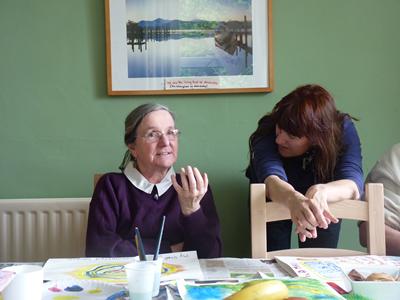Technologies like GPS could help people with dementia get out and about more safely

People with dementia want to remain at home in their communities. To do so, adaptations are required to help overcome the cognitive impacts of dementia.
Of the half a million people in the UK with dementia who live in their own homes, over 40 per cent will get lost at some point, and about 25,000 will get lost repeatedly, doubling their risk of admission to expensive long-term care.
Half of all those who go missing for more than 24 hours will die or are seriously injured.
When a person with dementia goes missing, a missing person’s investigation is launched, which is distressing for people with dementia and their families, and has significant costs to the police.
The University of Southampton has been awarded funding of over £188,000 from Alzheimer’s Society for a unique research project into the effectiveness and acceptability of using Global Positioning Satellite (GPS) technologies to promote safer walking for people with dementia.
The project is unique as it centralises the experience of people with dementia to find out more about the effectiveness and acceptability of technology use, and it includes the police.
Police forces, including Hampshire Constabulary, as well as local authorities, are issuing GPS devices supported by mobile telecare for individuals and families living with dementia.
This new Southampton project, overseen by Health Sciences’ Dr Ruth Bartlett, and managed by Dr Tula Brannelly, involves people with dementia, family carers, practitioners, police and industry as project partners to guide the research. The research will also provide a learning opportunity for a small group of physiotherapy students interested in the use of technologies for safer walking.
Research of this kind has conventionally taken a medical approach, but in this study, a rights perspective will be used, and the project will culminate in delivering practical guidance for people to use for when issuing and/or using technologies for safer walking.
Dr Bartlett explains: “Dementia is a disability and people with dementia have a right to expect effective measures to be taken to facilitate their personal mobility and social inclusion.
“As no guidance on issuing and/or using technologies for safe walking presently exists, our project aims to produce such guidance and cover the thorny issues such as capacity to consent and the cost of technologies.
“We believe our project will make a valuable and unique contribution, help improve community support, assist families to provide care for longer, and help keep people with dementia safe.”
Colin Capper, Head of Research Development and Evaluation at Alzheimer’s Society, said: “We are thrilled to be funding this project, which is a great example of how we can gather the evidence needed to see how far technology can benefit people affected by dementia.
“People with dementia should be able to go outside and enjoy their communities we need to find as many ways as we can to minimise any risks that come with this.
“Alzheimer’s Society is dedicated to funding research not only into the causes of dementia but also into finding the best ways to provide better care. The University of Southampton has a very strong track record of providing excellent research into dementia care and this project will add another vital piece of information that will help us make lives better for people living with dementia today.”
Dr Bartlett’s project has three phases. The first involves focus groups about the experiences of using or issuing technologies for safer walking.
The second phase aims to find out about peoples’ actual experience of using these technologies, by walking with individuals who use them, and talking to them while they are walking; a data collection method known as ‘go-along’ interviewing.
The third phase is the co-production of the practical guidance for people with dementia, their families, practitioners, police, commissioners and policy makers.
This method will capture peoples’ experiences of using technologies in ways other than language, so others can fully understand what it is like to have dementia and walk outdoors.
The practical guidance will help people with dementia and their families to engage in positive risk-taking and seek independence. It will also help to de-stigmatising the use of technologies for safer walking, and increase the confidence of people to make decisions about using technology.